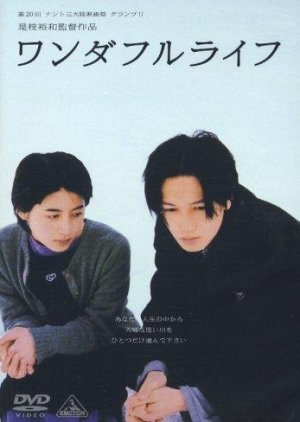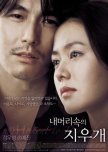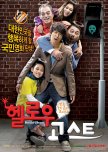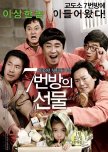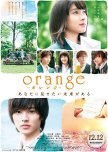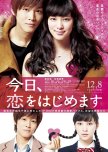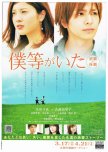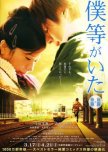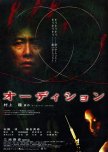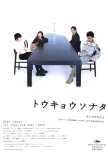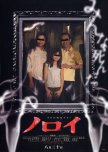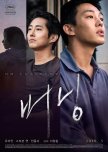
And so viewers join a group of counselors, long dead, as they work with the newly deceased to find their best memory. Each counselor is charged with several individuals, and they interview them one by one in order to root out what will make them most happy. As such, much of the film takes place in documentary-style interviews. We hear various stories from many individuals, diverse in ways from content to age range and era. However, there are a few unable to pin down anything anything at all. One man has never truly had a happy moment in his life, while another refuses to select anything despite ample material. Another young lady realizes times she thought were special were not quite as she remembered. What will happen to unfortunate people like these? There is also a mystery surrounding the counselors themselves… who are they and why were they chosen for this work?
Yet with such intense subject matter, After Life manages to be gentle and slyly humorous. It never reaches into your chest to tear out your heart, but delicately stirs that part of you which values sentimentality and fears death. What makes this film excellent is how carefully it explores these subjects: mortality and memory. It may induce laughter in you, perhaps it will leave a lump behind in your throat; but above all else, After Life will make you think long and hard. What would you choose?
Many familiar and veteran names grace the cast listing, such as Iura Arata, Terajima Susumu, and Iseya Yusuke. They stand out here as well, particularly the two counselors. However, the real stars are the memories and the people who share them. Many of the “interviews” were completely impromptu, and the people depicted are not actors, but real people reminiscing on film. Though it isn't clear which are scripted and which are authentic, they all leave great impact.
I always claim music is of paramount importance in both film and television. Despite this preference, it seems I've found an exception in After Life. This is a movie that does just fine without much of a soundtrack to recommend it. In fact, the silence lends realism, a solemn kind of respect and authenticity. There are no emotional cues for the audience, either…which is surprisingly nice for a change.
Cet avis était-il utile?

Marshmallow-Chocoholic
12 personnes ont trouvé cette critique utile
Reviewing A Classic In Retrospect; Kore-eda’s Philosophical Experiment…
Looking back in retrospect ‘ After Life’ ( 1999) is one of those movies which few Asian film enthusiasts know about unless they’ve been told or stumbled upon it before. Admittedly it’s understandable as to why ‘ After Life’ is often buried in the past- it’s heavy-going and arguably slightly dated within its filming techniques and appearances, but there’s also something oddly distinctive about director Kore-eda's approach to the movie.
The premise is simple enough: what happens after death. However contrary to a heavenly or a hellish after place which exists in so many other religions, Kore-eda a takes a visionary approach to the afterlife where the dead stay in a house for a week and are given the choice to hold onto one memory out of all others to preserve as they enter the afterlife. Over the film’s duration length capturing just one week in this mystical plane, 22 recently deceased mortals visit the lodge each with their own stories to tell and problems to face.
Kore-eda recalled that during the screenwriting process he was inspired by the crucial importance of memories during the onset of his grandfather’s Alzheimer’s, leading him to become curious about ideologies and views of individuals. This process led him to interview reportedly more than 500 individuals about their experiences and which are embellished throughout the film.
However whilst the storylines present interesting food for thought from a teenage girl who wants to relive her experiences at Disneyland ( before choosing something more personal after an epiphany), an old libertine who decided to choose a surprisingly sentimental memory and others choosing simple daily pleasures ( such as a bus ride) in different seasons, ‘ After Life’ often struggled to tackle these experiences in more sentimental depth. This is mainly because whilst there are many intriguing characters, there’s little time to actually give them screen time to be explored more thoroughly.
Throughout the duration of the move there are only three characters onscreen to be given dominant screen time; Ichiro Watanabe (Taketoshi Naito), a 70-year old businessman who died in the wake of an unsatisfactory life of menial work , and his afterlife guardians , Takashi Mochizuki (Arata) and Shiori Satonaka (Erika Oda). Whilst later revelations provide a climatic ( and then anti- climatic) revelation towards a shared link between Takashi and Watanabe, the build-up and resolution often lacked a more intriguing drive to viewers due to its slow pacing being intertwined with its shared other residents onscreen .
Of course this isn’t to bring down ‘ After Life’ entirely as in addition to its more philosophical and profound themes found in the storyline, Kore-eda is a masterful planner with the film’s cinematography also. Enlisting the talents of Yamazaki Yutaka ( who had previously won awards for his artistic filming in documentaries) through shooting on a 16 mm film as well as famous photographer Sukita Masayoshi in flashback sequences through a 8 mm, and 16 mm film in monochrome, ‘ After Life’ is visually memorable. Minimalistic filming techniques of snow, long empty halls and unoccupied rooms present a great contrast to the clever representation of the modern Japanese way station through limbo to the afterlife ; a reflection of the inescapable and fascinating mundane reality of the afterlife. Just as the rest of the film offers profound moments and should be counted by interpretation, the ending offers a reflective experience also.
So what is left to take from ‘ After Life’ ; is it a movie worth watching or is is overly dull and pretentious? ‘ After Life’ is a movie which even for the most erudite viewer is borderline mind-numbing at times with slow burn dialogue and cinematography dominating screen time. Of course this isn’t to say that the film is bad or unwatchable. Director Kore-eda’s imagination is reflected throughout the film’s palettes and concept, with poignancy reflected in each memory, as well as deeper questioning as revelations to come light. By far more intriguing food for thought than entertaining or exhilarating, ‘ After Life’ is not an easygoing movie and will likely not be to everyone’s personal tastes or likes. However those willing to delve into the film’s philosophical experiments and experience, will likely commend the film for being an intriguing piece of Japanese film history.
Cet avis était-il utile?

Despite being a serious movie, it had a lot of hidden humor which was a really refreshing touch.
I would recommend this to people that like the Japanese style of slow, thought-provoking movies.
Cet avis était-il utile?

Excelente introducción al director.
Una belleza. Sinceramente es una de esas películas que sólo vi una vez pero se quedó en mi corazón para siempre. Si, no es particularmente dinámica, pero siento que lo que transmite tiene mucho que ver con la idea generalizada de lo que significa la muerte para muchos: Una especie de detención en el tiempo. Y es precisamente eso lo que se registra. Incluso en la fabricación tan artificial de los recuerdos, está la subjetividad de cada uno, que al ver esos trucos tan pobres, quedan maravillados y expresan que era "exactamente así" como lo recordaban. A mí, particularmente, me trajo a la memoria el cuento de las dos amigas que recuerdan el mismo dibujo en la pared de su antiguo colegio aunque con colores diferentes, y al llegar a confirmar quién tiene razón, descubren que el dibujo era en blanco y negro. La memoria es así para muchos, una construcción ideal de aquello que apenas se recuerda. Y, esta película expresa maravillosamente eso. Porque no es el recuerdo en sí lo que los mueve, si no las personas en ellos. Es preciosa.Cet avis était-il utile?
Cet avis était-il utile?

